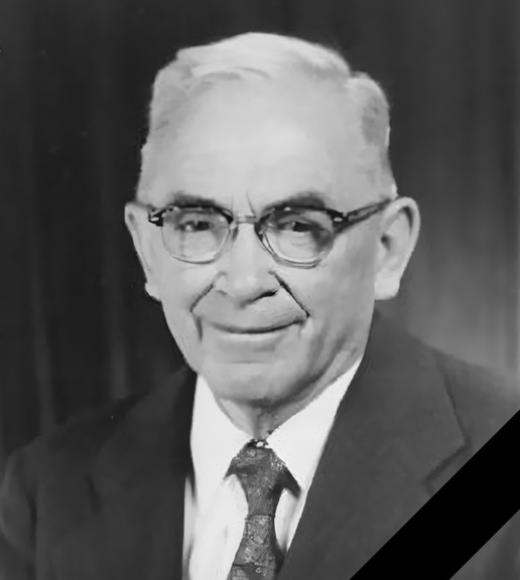
Position Title
In Memoriam
Professor Emeritus, Horticulture and Pomology
1878-1970
WILLIAM HENRY CHANDLER
Birth: July 31, 1878, Butler, Missouri
Death: October 29, 1970, Berkeley, California
Education
- B.S., Agriculture, University of Missouri, 1905
- M.S., Agriculture, University of Missouri, 1906
- Ph.D., Horticulture, University of Missouri, 1914
Employment
- Assistant, Instructor, and Assistant Professor of Horticulture, University of Missouri, 1906–1913
- Professor of Pomology, Cornell University, 1913–1923
- Professor and Chair of Pomology, University of California, Berkeley and Davis, 1923–1938
- Assistant Dean, College of Agriculture, University of California, Los Angeles and Riverside, 1938–1943
- Professor of Horticulture, UCLA, 1943–1948
- Professor Emeritus, University of California, 1948–1970
Honors, Awards, and Professional Societies
- President, American Society for Horticultural Science, 1921
- Member, National Academy of Sciences, 1943
- Faculty Research Lecturer, UCLA, 1944
- Wilder Medal, American Pomological Society, 1948
- Charles Barnes Honorary Life Membership, American Society of Plant Physiologists, 1951
- Honorary LL.D., UCLA, 1949
Research Contributions and Impact
Chandler transformed horticulture from a largely empirical practice into a scientific discipline. His pioneering work on cold injury in plants, bud dormancy, and the physiological processes underlying fruit tree growth provided a foundation for modern pomology. He demonstrated how environmental factors, particularly chilling, influence dormancy and flowering and advanced understanding of how freezing injures plant tissue.
Chandler’s most significant scientific achievement was identifying zinc deficiency as the cause of “little leaf” in stone fruits, “rosette” in apples and pears, and “mottle leaf” in citrus — discoveries that led to routine treatments still in use today. His research into frost resistance, tree nutrition, pruning, and plant physiology had major economic and agricultural impacts.
Publications and Scholarly Leadership
Chandler authored several landmark books, including Fruit Growing, Deciduous Orchards, Evergreen Orchards, and North American Orchards, some of which were translated into Hebrew and Russian. These texts became standard references in horticultural science.
Teaching and Mentorship
Chandler emphasized rigorous scientific training in pomology and encouraged his students to integrate plant physiology and basic sciences into horticultural research. His mentorship shaped generations of horticulturists, many of whom went on to become leaders in academia and industry.
Collaboration and Community
Chandler worked closely with farmers, extension agents, and experiment station researchers, promoting collaboration between applied and basic science. His approach linked field research with laboratory studies, improving agricultural practices and technology adoption.
Legacy
Widely regarded as the “dean of American horticulturists,” Chandler’s influence extended far beyond academia. His scientific contributions reshaped orchard management, plant nutrition, and pomological research. The highly successful Chandler walnut cultivar, introduced by UC Davis in 1979, was named in his honor and remains the most widely planted walnut variety in California, as well as one of the most important worldwide.
References
For additional tributes, interviews, and biographies, see the following resources:
